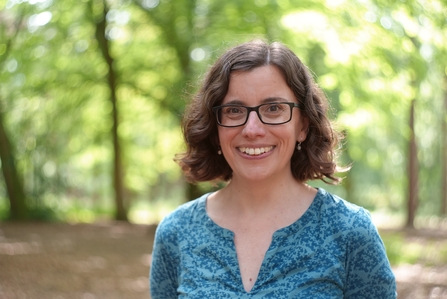The Wildlife Trusts have announced Kathryn Brown as the charity’s first director of climate action. The Trusts have created this permanent climate role in response to the climate and nature crisis – the two emergencies are inextricably linked, and one cannot be solved without addressing the other.
Just a few days ago, NASA reported that 2021 was the sixth hottest year on record, and that the last eight years have been the hottest ever recorded. Restoring nature is key to tackling climate change because healthy habitats store carbon – whilst drained peatlands, for example, actively emit it. Nature can also play an important role in helping us adapt to changing temperatures and extreme weather.
Kathryn, formerly of the UK Government’s independent climate advisor, The Climate Change Committee (CCC), was seconded to The Wildlife Trusts last summer as an interim director ahead of COP26.
She was awarded an OBE for her services to climate change research in January’s New Year’s Honours list, and after a rigorous interview process has been selected as the best candidate to fill the permanent directorial role.
Craig Bennett, CEO of The Wildlife Trusts, says:
“As The Wildlife Trusts work to tackle the twin nature and climate emergencies Kathryn Brown’s experience will be invaluable – we're absolutely delighted that she’s agreed to join our team.
“Too many climate records are breaking as the world warms, and though the natural world should be our ally in the fight against climate change, too many of our natural habitats are now so degraded they are unable to store carbon. We need to get serious about tackling these environmental crises by putting nature in recovery across 30% of land and sea by 2030.”
The Wildlife Trusts are at the forefront of repairing thousands of hectares of peatlands, saltmarsh and other carbon-storing habitats, as well as giving new areas of land a chance to recover for nature – providing vital natural solutions to climate change. The 46 Wildlife Trusts are collectively the sixth largest land holder in the UK; they care for reserves covering over 100,000 hectares and provide land advice across an additional 200,000 hectares.

